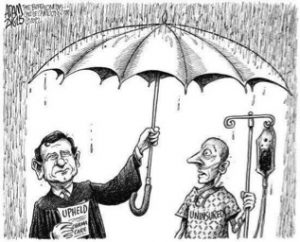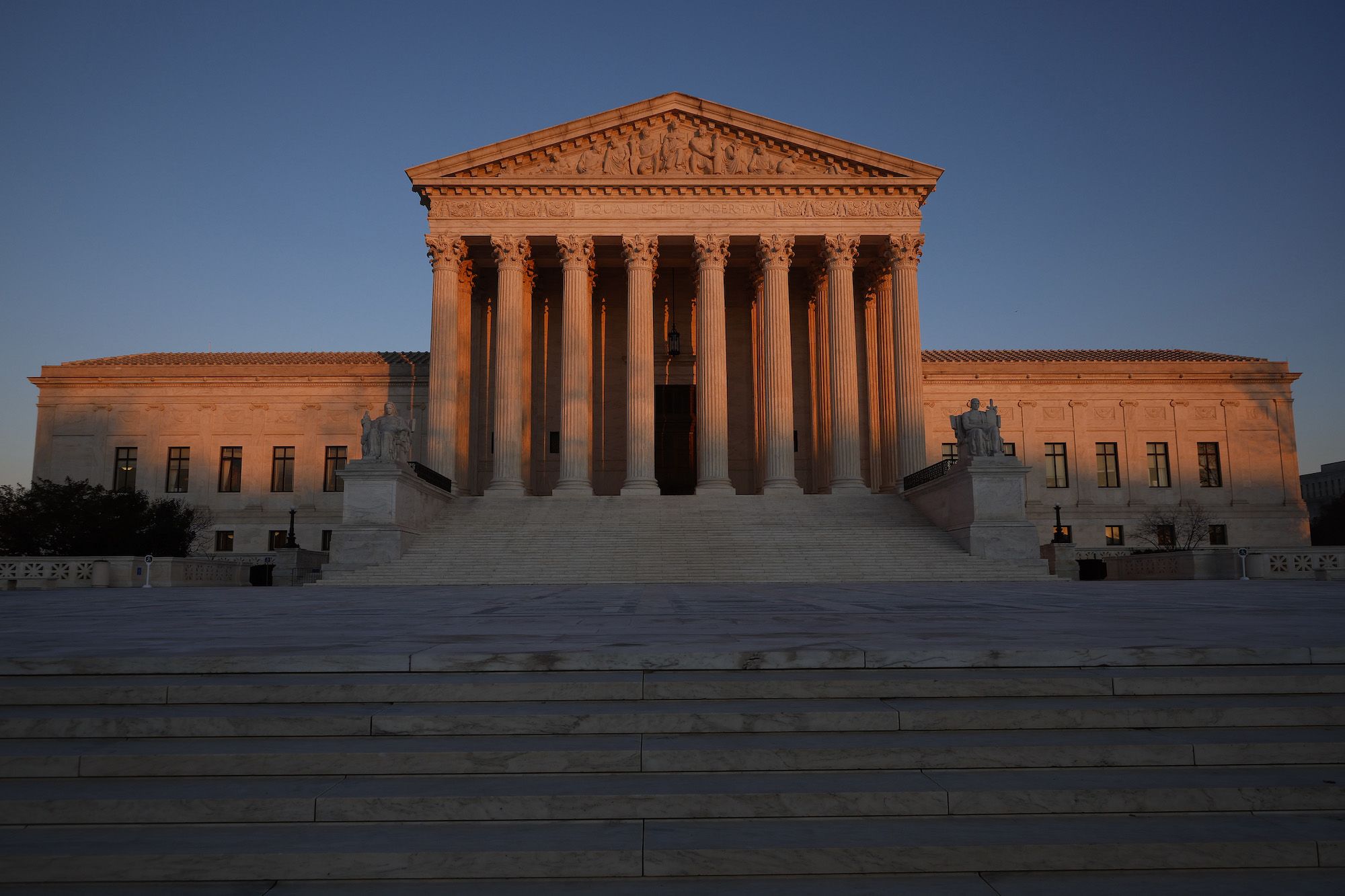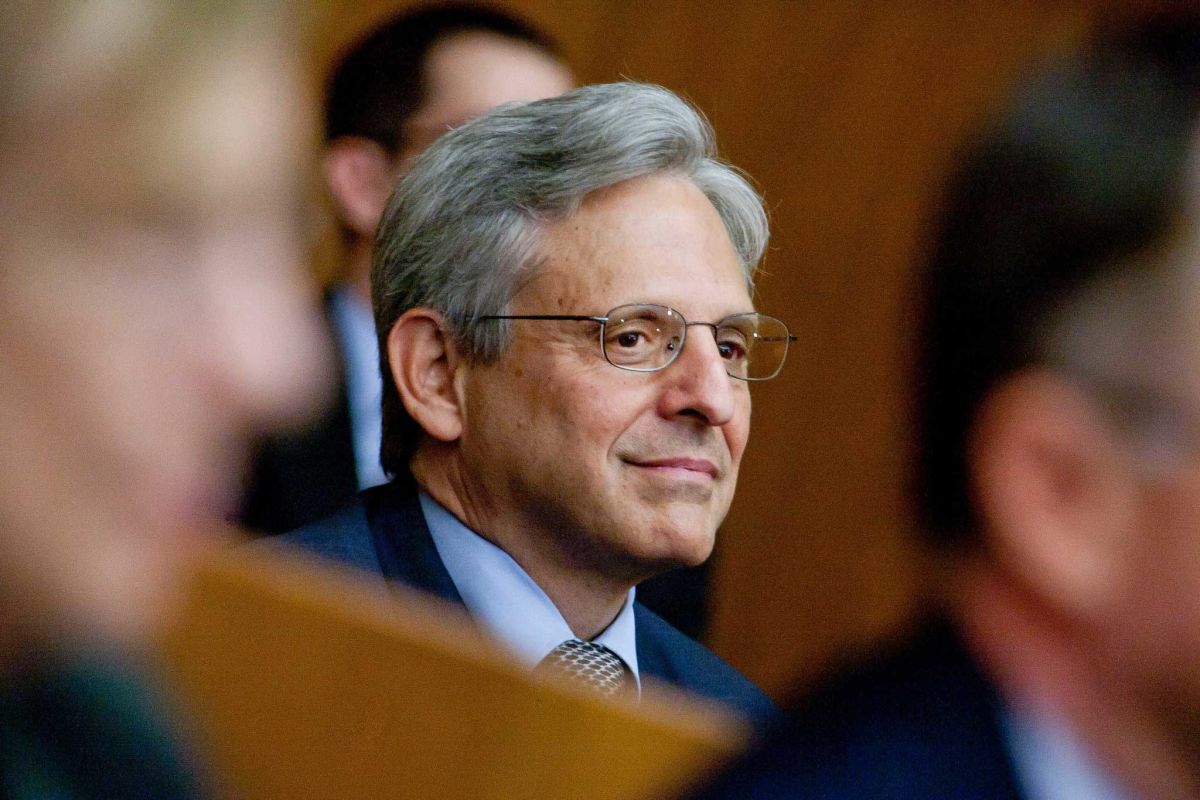
Just this Thursday, the Supreme Court of the United States issued a ruling in National Federation of Independent Business v. Sebelius, a challenge to the constitutionality of Obama’s signature legislative achievement, a momentous reform of the American health care system in the form of the Affordable Care Act. The ACA, better known as “Obamacare”, accomplishes this reform in large part by imposing an individual mandate forcing U.S. citizens to purchase health insurance or pay a “penalty.” From the first debates concerning the law within the halls of Congress, the ACA and the individual mandate have sown political discord across the country, fanning the flames of the Tea Party movement and galvanizing liberal activists for whom significant health care reform has been a pipe dream for decades.
Subsequently, the case’s political significance has made it perhaps the Court’s most politically divisive case since Bush v. Gore. The 5-4 ruling issued on Thursday and its accompanying opinions, penned by Chief Justice John Roberts, Justice Antonin Scalia, and Justice Ruth Ginsburg, stunned both casual and longtime observers of the Court. The final decision to affirm the law’s constitutionality, while unexpected by many after the dismal performance of Solicitor General Verrilli during oral arguments, was not the most shocking news delivered Thursday. Instead, it is the breakdown of the 5-4 vote, with the conservative Chief Justice joining the four justices of the Court’s liberal wing to form the majority, which has set the legal and political world abuzz. Below is an opinion from GPR’s Cody Knapp concerning the decision:
By: Cody Knapp
Here in France, my American friends and I waited anxiously Thursday for news of the final vote. We sat in our French class with my MAC opened to SCOTUSblog’s ACA live-blog, paying more attention to the updates on the screen than to the rules regarding the use of the subjunctif that our professor was writing on the whiteboard. At around 16h07 our time, just minutes after the Court had closed its doors to begin reading the day’s opinions, a series of mildly confusing posts began streaming in as SCOTUS bloggers attempted to quickly decipher the complex final ruling. Finally, a post came through stating that the constitutionality of the ACA had been affirmed. A minor celebration broke out among the liberals in our class, after which we attempted to explain to our French professor in our broken intermediate French the significance of this moment.
While the final ruling surprised some observers, I was among those who had expected/hoped that the law would pass this legal test. I wasn’t even all that surprised that Chief Justice Roberts was the decisive vote, taking on what seems to normally be Justice Kennedy’s role on the Court. I was, however, surprised by the legal acrobatics that the Chief Justice utilized to reach his final conclusion on behalf of the majority.
Rather than accepting the choice between joining the conservatives in striking down the entire law or joining the liberals in accepting the government’s argument that the individual mandate was a constitutional exercise of the Commerce Clause, Roberts came up with his own method. In his opinion on behalf of the majority, Roberts wrote that the individual mandate was constitutional under Congress’s taxing power, disappointing many of the conservatives who had fought so hard to see him instated on the Court.
In my opinion, this unexpected justification was the result of a balancing act by Chief Justice Roberts, done for the greater good of the nation and the Court. The Chief Justice, more than any of the other justices on the bench, has a vested interest in maintaining a positive and respected image of the Court. In fact, he was confirmed as Chief Justice after stating that one of his main goals in office would be to restore confidence in the Court. He also promised to exert judicial restraint, giving the elected branches of government a great deal of leeway in cases where any plausible constitutional justification could be found. I believe that the Chief Justice made his decision and cast his vote with this goal in mind.
Public confidence is something of which the Court currently has great need. Since deciding the 2000 presidential election along partisan lines, the Court’s approval rating has declined steeply and its integrity has been constantly under assault. Already, the Court is viewed as practically being made up of four Republicans (Scalia, Alito, Thomas, and Roberts), four Democrats (Breyer, Kagan, Sotomayor, and Ginsburg), and a conservative Independent (Kennedy).
With the relatively recent decision in the Citizens United case creating an entirely new and despised dynamic in American elections, as well as upcoming cases next year dealing with the Voting Rights Act, affirmative action, and gay marriage, the Court is in danger of using up its political capital in the eyes of the American public. Too many divisive and partisan decisions will cause the Court to be viewed as merely another political branch of government, and not as the impartial branch that was intended. Obama’s recently implied threats to run against a partisan Court may also have played into the Justices decisions.
Still, contrary to what many conservative commentators are saying at the moment, Chief Justice Roberts did not abandon his conservative ideals in writing the majority opinion. While not a pure ideologue in the Scalia/Thomas mold, he still managed to take a shrewd tact that has allowed him to validate the ACA while limiting the powers of the federal government under the Commerce Clause at the same time. Thus, he avoided having the Court make an incredibly controversial ruling just before a presidential election year, allowed the popularly elected branches of government to enact reasonable solutions to national problems, and insulated himself to an extent from future condemnation as a political partisan.
Both sides of the political spectrum should see this SCOTUS ruling for what it is: a momentary but significant victory for the Obama administration, but a victory for conservative jurisprudence overall. Those who fear new, wide-open federal powers need not worry. Their judicial darling-turned-pariah has saved them from the bogeyman of true socialism…for now. For liberals, watch out; this Court is no friend to prominent liberal causes and may now feel licensed to invalidate portions of the Voting Rights Act or end affirmative action entirely. As glad as I am to see health care reform on the horizon, I must admit that we have not won the day; we have merely just witnessed a brilliant strategic retreat by the nation’s most prominent conservative jurist.

